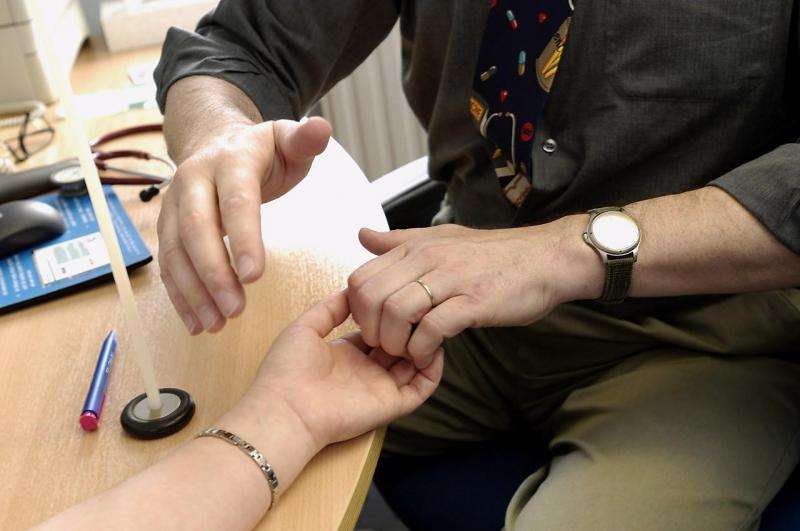Report shows medical revalidation is off to a good start

An interim report compiled for the General Medical Council (GMC) by a consortium of researchers known as UMbRELLA and led by Plymouth University represents the first UK-wide investigation into medical revalidation. It has found that around 40 per cent of doctors are changing how they work as a result of their last appraisal.
The report shows that around half of doctors under the age of 50 have changed the way in which they practice.
Revalidation for doctors was introduced in the UK in December 2012 and requires all doctors to demonstrate that they are 'up to date and fit to practise'. It consists of a five-year cycle review based on annual appraisals. The process includes feedback from colleagues and from patients.
This latest interim report is part of a three-year study into the impact of revalidation. Its results are based on a survey of 26,000 licensed doctors together with hundreds of responsible officers (who oversee the practical application of revalidation) and feedback from patients and the public.
UMbRELLA is led by health education academics from the Collaboration for the Advancement of Medical Education Research and Assessment (CAMERA) at Plymouth University Peninsula Schools of Medicine and Dentistry. The consortium also includes Belfast Health and Social Care Trust, Healthcare Improvement Scotland, NHS Education for Scotland, Manchester Business School at the University of Manchester, University College London and the Wales Deanery.
Dr Julian Archer, Director of CAMERA and lead for UMbRELLA, commented:
"This interim report summarises the views of a large number of doctors and has started to provide us with an excellent overview of the impact of medical revalidation in the profession. We are already undertaking a series of complementary work streams including recording appraisals and interviewing doctors as 'appraisees' and appraisers. This will allow us to explore in more depth the impact revalidation is having on reflective practice, behavioural change and ultimately patient safety."
The final report will be published in 2018, while the interim report will contribute to the revalidation review being conducted by Sir Keith Pearson, Chair of the GMC's Revalidation Advisory Board. The GMC will address the findings of the interim report and Sir Keith's recommendations, when his report is published later this year.
Niall Dickson, the Chief Executive of the GMC said: "We introduced revalidation in 2012 to give patients greater confidence that doctors are up-to-date in the areas in which they practise, and to support doctors by ensuring they have the opportunity to regularly reflect on their practice. We're pleased that these interim findings show that it is beginning to do that. This is encouraging news for both patients and their doctors. That said, this interim report does highlight some issues which we need to consider further. We want revalidation to be a positive experience for doctors and to maximise how it can contribute to high quality and safer care. At the same time we fully understand the pressures that doctors are under and we'll be taking this into account as we shape our plans for the future."
Findings from the interim report include:
- 90 per cent of surveyed doctors have had a medical appraisal in their career, 94 per cent of whom had had an appraisal in the previous 12 months.
- Around a third of doctors said revalidation has improved the appraisal process.
- More than 40 per cent of doctors believe appraisals are effective in helping doctors to improve their clinical practice – and less than a third disagreed.
- Doctors in some specialities (such as anaesthetics, psychiatry and emergency medicine) struggle to collect patient feedback.
- Doctors who obtained patient feedback found it is the most helpful information to support reflection on their practice.
More information: Read the interim report: www.gmc-uk.org/about/research/29074.asp
















